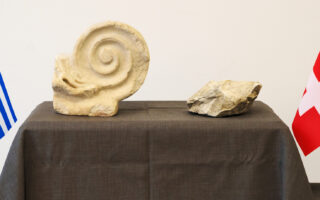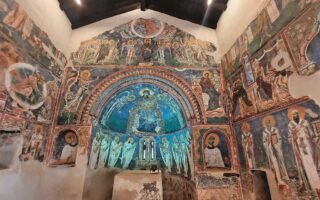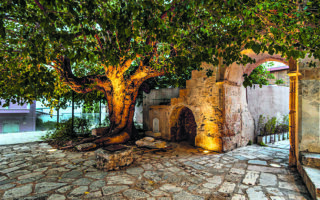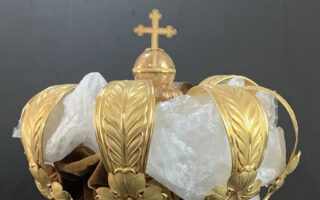Expert on Alexander the Great weighs into debate about docudrama on his life
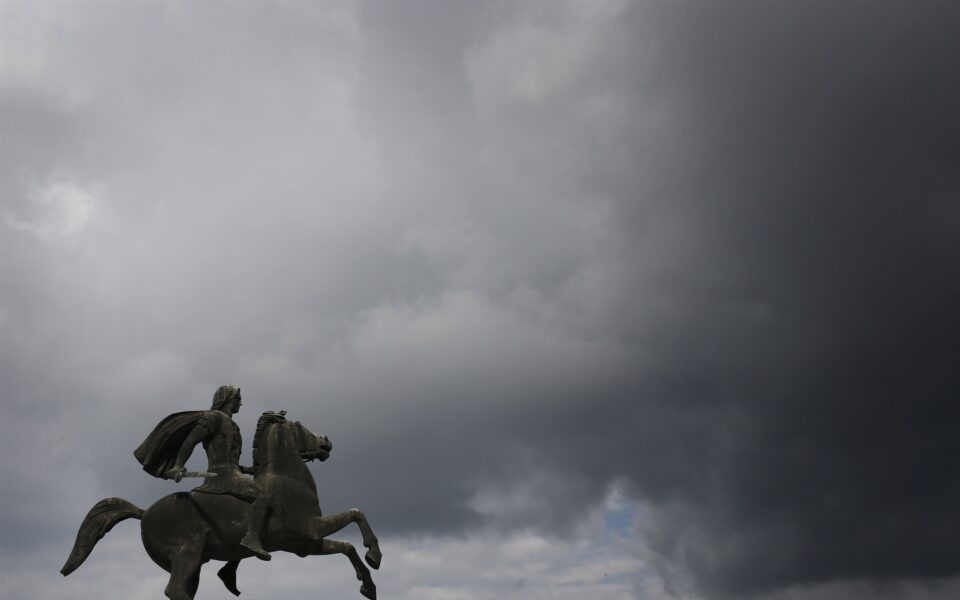
“Alexander the Great: The Making of a God” is the title of a new docudrama on the Netflix platform, which raised a storm of reactions, with the Greek minister of culture, Lina Mendoni, labeling it “of poor content and low quality.” Kathimerini contacted Dr Paul Cartledge, professor emeritus of Greek culture at the University of Cambridge and author of the book “Alexander the Great: The Truth, Behind the Myth,” and asked him about the validity of the suggestions about the life of the famous general, such as the Alexander-Hephaestion “relationship” and whether, ultimately, the Greek Ministry of Culture should take action against those who exploit Greek history arbitrarily.
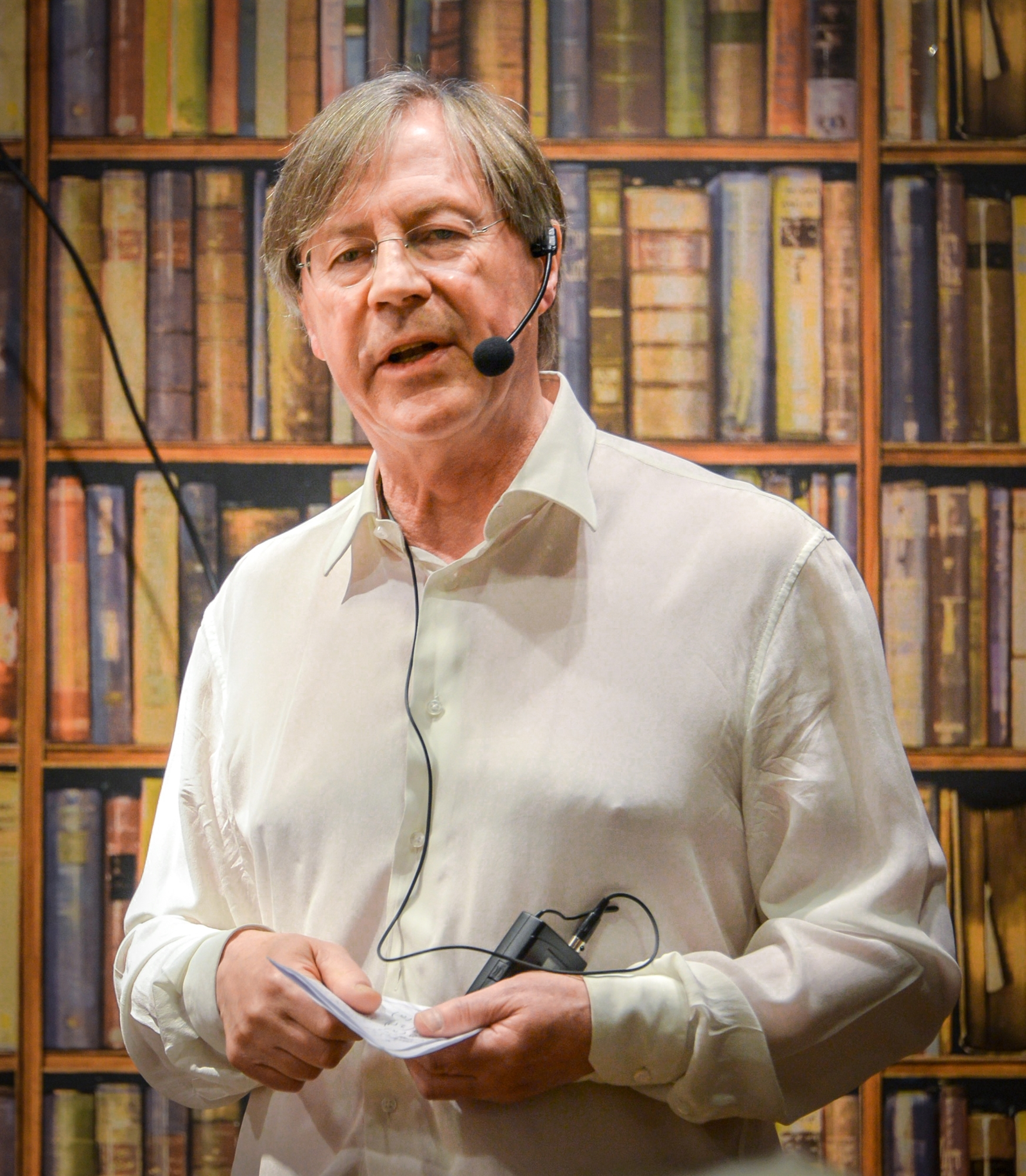 Professor Cartledge, based on your deep historical knowledge, I would like to ask your opinion on the recent Netflix docudrama “Alexander: The Making of a God”?
Professor Cartledge, based on your deep historical knowledge, I would like to ask your opinion on the recent Netflix docudrama “Alexander: The Making of a God”?
My reaction is mixed. Alexander is actually a much more difficult, more complex, and much less accessible subject than the average viewer will assume – for two reasons: a) we have no diaries, no other evidence of a deeply personal, psychosocial nature about him, so we can never know what really made him tick; b) his career, and his achievements, were so extraordinary, almost superhuman, that it’s very hard for us ordinary mortals to take the true measure of the man. Netflix did well to call their series “the making of a god,” because Alexander was indeed worshiped as a god in his own lifetime by some of his fellow Greeks as well as by non-Greeks.
Much of the criticism of the documentary focused on the presentation of Hephaestion as the sexual partner of Alexander the Great. What do the ancient texts say about the love life of Alexander the Great, who fathered only one child and that relatively late in his life?
It is complicated. In his lifetime Alexander sired just one living child – with a half-Greek, half-Iranian woman – whom they called Herakles. No marriage there – so no dynastic heir to the Macedonian throne. His first wife, Roxana – a Sogdian-Iranian woman – was pregnant with their first child when Alexander died. So Alexander was not exclusively “gay” – even if the ancients had had such a category, which they did not.
Almost all ancient Greek males, especially royals, married women, but some were exclusively homosexual – one of those, Pausanias of Athens, is a character in Plato’s dialogue on eros/love, the Symposium. And at Thebes, between 378 and 338 BC a whole infantry regiment, the “Sacred Band,” was composed of 150 adult male couples. But the norm for at least some upper-class males was a premarital homoerotic phase – first as a junior beloved, then as the senior, adult partner.
‘His achievements were so extraordinary, almost superhuman, that it’s very hard for us ordinary mortals to take the true measure of the man’
Alexander was brought up with his coeval Hephaestion at Pella, educated with him by the great Aristotle and he probably – I stress “probably” – had a homoerotic, homosexual relationship at least in their late teens and possibly later – remember that Alexander became king of Macedon when only 20. I stress “probably” because no ancient sources explicitly say they were lover and beloved.
On the other hand, they do say that Alexander did have a homosexual relationship, more than just a fling, with a Persian eunuch named Bagoas. To me, that means that as an adult – he was by then 30 or so – Alexander was not exclusively heterosexual. However, by then he had acquired not one but three wives, simultaneously: Roxana, above, and two Persian princesses. So – he never married a Greek woman! Scandalous! All his three wives were Iranian, and the one son he sired in his lifetime was with a half-Iranian woman. Interesting! much more interesting anyhow than the anachronistic issue of whether or not he was gay.
The cause of Alexander the Great’s death to this day has not been clarified. In your own estimation, did he die from poisoning or from an illness? And if you lean toward the latter, for what reason did it pass into history that he was probably murdered?
I do myself lean to his death being due to a fatal illness coming on top of years of being seriously wounded, near-death illnesses, excessive drinking of alcohol, and lack of adequate medical knowledge, skill, and drugs. Conspiracy theories were popular in the ancient world, as they are today; and since, as noted above, civil war pretty much broke out immediately after his death, it was easy to infer that Alexander’s death had been artificially hastened to benefit one or other of the contenders to inherit his supreme – individual – autocratic power. But if he was in fact murdered/assassinated, then it would have been by poisoning – plenty of monarchs in the ancient world, from Persian to Roman emperors, were killed that way.
The Netflix documentary refers to the tomb of Alexander the Great as one of the greatest mysteries of antiquity. Recently the historian Helene Glykatzi-Ahrweiler stated that in her opinion the tomb of Alexander the Great is located in his ancestral land, in the area of Amphipolis. In your opinion where is the final resting place of the Grand General?
Mrs Ahrweiler is a historian of Byzantium, not of Classical Greece. Alexander was first buried in Babylon, mummified/embalmed, then exhumed in 321 BC, for the corpse to be taken back to the Macedonian royal burial ground at Aigai, modern Vergina, only for the royal baggage train to be intercepted/hijacked by Ptolemy, boyhood friend of Alexander. As satrap, Ptolemy had Alexander’s corpse reburied first at the old pre-Persian Egyptian capital, Memphis. Sometime after that, when Alexandria had been built, and had a “palace” built there, the corpse was again reburied, this time permanently, in a grand, sort of “Lenin”-like mausoleum. But what happened to that tomb, and where exactly it was located, is anyone’s guess – and many have guessed. My own guess is that, since the royal quarter of Alexandria is now underwater, so too is what if anything is left of Alexander’s tomb and corpse.
Concluding, from the “black” Cleopatra to the “low-quality” Alexander the Great. In your opinion should the Greek Ministry of Culture protest and protect its cultural product?
The Greek Ministry of Culture has as much or as little right to protest against the Netflix “Alexander” as the Iranian regime had to protest, as they did, against Zack Snyder’s 2006 Thermopylae-based movie, “300.” A movie is of course a movie, not history, even if allegedly “based on” facts of history. The Netflix “Alexander” docudrama is far more drama than a documentary: It is made up, a fiction, and as such it is entertainment rather than instruction. To be enjoyed or not rather than to be learned from.
As for the “low-quality” Alexander, I suspect that absolutely no actor of our times could begin to impersonate with anything like total fidelity the real Alexander – who was rightly labeled or nicknamed, though well after his death, “the Great.” There were several other Macedonian kings called Alexandros but only one Alexander the Great. Alexander did some very bad, indeed terrible things – both to individuals, like Black Cleitus and Batis, the eunuch governor of Gaza, and to collectivities, like against the Thebans in 335 BC and the Malloi in 326 BC. But without any question whatsoever he was not just great but “The Great.”

